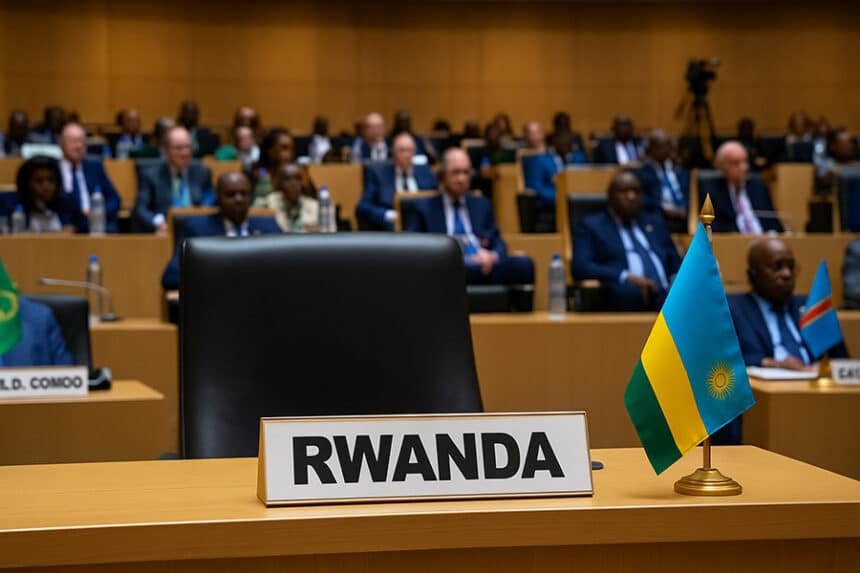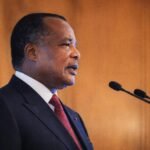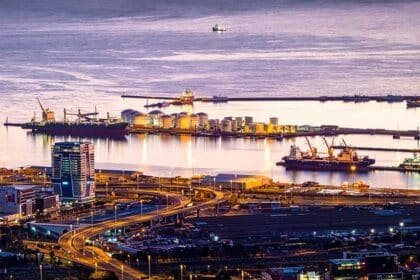A Chair Denied in Malabo
The twenty-sixth ordinary summit of the Economic Community of Central African States (ECCAS) convened in Malabo on 7–8 June 2025 with a seemingly routine agenda: Rwanda was due to take the rotating chair, a succession explicitly enshrined in Article 6 of the treaty. Events veered off script when a procedural motion—reportedly steered by the Democratic Republic of Congo (DRC)—extended Equatorial Guinea’s mandate for a further year. Kigali’s delegation staged a dramatic walk-out, condemning what it called “a deliberate marginalisation designed to impose the diktat of the DRC”. Minutes later the foreign ministry issued a communiqué asserting that Rwanda “sees no justification for remaining in an organisation whose current functioning runs counter to its founding principles”.
Kinshasa’s Counter-Narrative and Security Subtext
Kinshasa moved swiftly to shape the narrative. A statement from President Félix Tshisekedi’s office proclaimed that ECCAS had “acknowledged Rwanda’s aggression” and demanded Kigali withdraw its forces from Congolese territory (Reuters, 8 June 2025). By linking the chairmanship dispute to the M23 rebellion, Congolese diplomats framed Rwanda’s exit as implicit confession. Kigali countered that its forces operate solely in self-defence against the FDLR militia and maintains that accusations of arming M23 are “part of a disinformation campaign that ignores decades of cross-border militia activity,” according to government spokesperson Yolande Makolo.
Security calculations amplify the stakes. Since January the M23 alliance has overrun the mining hubs of Butembo and Bunia, jeopardising cobalt and tantalum supply chains indispensable to global battery production. In Johannesburg spot cobalt prices have climbed fourteen per cent since April, a spike analysts attribute to uncertainty over North Kivu export corridors. By withdrawing from ECCAS, Rwanda relinquishes an institutional forum for security co-ordination precisely when resource governance has become both more urgent and more politically fraught.
Regional Geometry and External Stakeholders
ECCAS’s fragility has long been an open secret, yet Kigali’s unilateral walk-out is unprecedented. The 1983 Libreville Treaty is silent on withdrawal, forcing member states into uncharted legal terrain. Cameroonian jurists compare the dilemma to Brexit: a political act now demanding a bespoke legal pathway. Angola’s foreign minister Téte António warned that “any precipitate disengagement would damage every regional framework we have painstakingly built,” reflecting anxiety that copy-cat exits might follow.
External powers are recalibrating. Washington prizes Rwanda’s counter-terrorism credentials and its reliable troop deployments to UN missions, yet fears the withdrawal fuels narratives portraying Kigali as an intransigent actor. Brussels, meanwhile, eyes Central Africa’s lithium reserves and worries that institutional paralysis could delay supply-chain agreements promised under the EU’s Global Gateway initiative. Beijing, less publicly, sees an opportunity to strike bilateral deals with individual states, circumventing multilateral procurement hurdles.
Diplomatic Options after Departure
Inside Rwanda the Cabinet has framed the decision as a principled stand rather than a retreat. Addressing the Senate on 9 June, Foreign Minister Vincent Biruta declared that “co-operation can flourish only where rules apply equally,” signalling a pivot to the East African Community (EAC) and deeper engagement with the Commonwealth. Analysts outline three plausible scenarios. First, Kigali could negotiate a bespoke association agreement with ECCAS, preserving tariff-free trade while relinquishing political obligations. Second, it may double down on EAC mechanisms to absorb lost market access. Third, Rwanda could promote a mini-lateral cluster with like-minded neighbours such as Gabon, centred on infrastructure corridors and digital payments, thereby substituting function for form.
A Watershed or a Tactical Pause?
Whether Rwanda’s empty chair becomes a footnote or a diplomatic watershed will hinge on two variables: the tempo of violence in North Kivu and the readiness of ECCAS heavyweights to engineer a face-saving compromise. Should renewed fighting choke mineral corridors, Angola and Cameroon may revive shuttle diplomacy to coax Kigali back. Conversely, if Kinshasa sustains its present momentum, Rwanda could entrench its eastward pivot, accelerating centrifugal forces already straining the bloc. In either outcome, the Malabo summit is likely to be remembered less for its technical agenda than for exposing the limits of solidarity within Central Africa’s most ambitious experiment in integration.


















